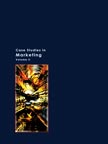Marketing 'The Da Vinci Code'
|
|
ICMR HOME | Case Studies Collection
Case Details:
Case Code : MKTG134
Case Length : 12 Pages
Period : 2003 - 2006
Organization : -
Pub Date : 2006
Teaching Note : Available
Countries : Europe, USA
Industry : Media, Entertainment, and Gaming
To download Marketing 'The Da Vinci Code' - Marketing Case Studies case study
(Case Code: MKTG134) click on the button below, and select the case from the list of
Available cases:

Price:
For delivery in electronic format: Rs. 300;
For delivery through courier (within India): Rs. 300 + Shipping & Handling Charges extra
» Marketing Case Studies
» Marketing Management Short Case Studies
» Case Studies Collection
» ICMR HOME
» Marketing Management Short Case Studies
» View Detailed Pricing Info
» How To Order This Case
» Business Case Studies
» Area Specific Case Studies
» Industry Wise Case Studies
» Company Wise Case Studies
Please note:
This case study was compiled from published sources, and is intended to be used as a basis for class discussion. It is not intended to illustrate either effective or ineffective handling of a management situation. Nor is it a primary information source.
Chat with us

Please leave your feedback

|
|




<< Previous
A Word-of-Mouth Success
|
|
One of the main reasons for the success of the book, apart from its controversial content, was the unique word-of-mouth marketing approach that the publisher adopted. A survey undertaken in March 2005 to mark the World Book Day in Great Britain, found that word-of-mouth publicity was much more important in the promotion of books than advertising, cover design, synopsis at the back cover, etc. The survey also found that 'The Da Vinci Code' had topped the list of books that sold due to word-of-mouth and personal recommendations (Refer to Table II for list of word-of-mouth best-sellers found in the survey).
|
The survey also reported that one in every four readers said that the last book they read was based on personal a recommendation. One third of respondents who were less than 35 years old said that recommendation was the most important criterion in the selection of a book.
The survey also revealed that though publishers and booksellers were spending around £70 million to £100 million on various advertising and marketing measures, only 6% of respondents said these were a deciding factor in their choosing a particular book. Another 7% of the respondents said they were influenced by the cover design and 16% said that the jacket description was the deciding factor...
Promoting the Motion Picture
|
|
In April 2006, Google announced that it had tied up with Sony Pictures for promoting the 'The Da Vinci Code' motion picture through a series of puzzles and questions to be displayed on the personalized home pages of Google's users. This was the first time that Google was involving itself in a promotional effort related to a motion picture. Marketing experts expected both Google and Sony Pictures to benefit from this 'viral marketing' effort. However, some analysts felt that Google stood to benefit even more as players would need to make the Google page their personal home page and have a Gmail account.
|
Moreover, the final question that would be posed after the other puzzles had been successfully completed had to be solved using Google Search. They felt that the main objective of Google's promotional tie-up was to familiarize Internet users with Google's products/services and go beyond its search function service, which was already popular (Refer to Exhibit II for list of Google products/services)...
Excerpts Contd...>>
|
|








